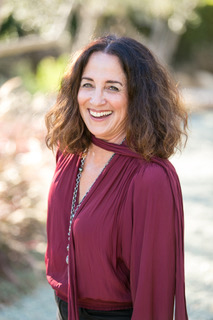I woke up this morning feeling overwhelmed. It’s not that I had a bad dream or something bad happened. I just felt overwhelmed by negative news, negative repartee, and negative musings.
Well, okay, my thoughts were sparked by my friend Elaine, who’d posted on Facebook that she felt sad for no apparent reason. “There wasn’t a story attached to it, just this palpable sadness,” she said. This particular woman, a comedian who is usually quite upbeat, shocked me with her words, and I contemplated their origin. I thought about how she might have tapped into what so many of us are feeling right now. There might not be a particular incident that leads to sadness; it’s just an overall feeling of being overwhelmed and morose. It’s the negative world energy perpetrating the universe during a time when it should be filled with awe and wonder.
As a relatively new grandparent, I find many of my most beautiful moments are observing the world through a child’s eyes—with an unwavering sense of awe. Everything is new. Everything is fascinating. Everything is positive. As we grow up and become adults, where does that wonder go, and how can we bring it back? At what point do we become so jaded by life’s experiences that we fall into a trap of negativity and unhappiness?
In his book Zen Mind, Beginner’s Mind (1976), Zen master Shunryū Suzuki spoke about the importance of maintaining the sensibility of the “beginner’s mind.” The idea is that the beginner’s mind tends to be open to many possibilities, unlike the expert’s mind, which sees only a few. Remaining open-minded and available for new ideas is important, in the same way that we might witness it in young children, who are like sponges for learning. Having a beginner’s mind is also about suspending your disbelief and going with the flow of your experiences.
Buddhists have it right. Many of our troubles and issues may be solved by maintaining a beginner’s mind or having a mind that holds no expectations, preconceived ideas, and judgments. Some would say that this would be a world without “shoulds.” Others might argue that if we are to live together harmoniously, then of course we need societal guidelines.
Nurturing a beginner’s mind is also about having a clean slate. It’s about moving about our day with a clear mind and seeing things with fresh eyes, as a beginner or a child might. With a beginner’s mind, there are no assumptions about anything. I suppose when there are no assumptions, then there aren’t a lot of disappointments, and oh, what a world that would be! Having a beginner’s mind or a modified beginner’s mind can transform us and our relationships.
In my book Writing for Bliss: A Seven Step Plan for Telling Your Story and Transforming Your Life, I talk about writing memoirs using a beginner’s mind because this is when our most authentic voice emerges, and when this happens, we can get to the heart of the story. But having a beginner’s mind takes practice. It’s about dropping the baggage and ways of being that we might have carried around for a very long time.
In a sense, it’s probably impossible to drop all our baggage, but even dropping some is helpful. A daily meditation practice can set the stage for having a beginner’s mind. It’s also wise to just sit still and do a scan of oneself to be aware of what the body is feeling and sensing, and then focus on the breath, observing and paying attention to its rhythm. Maintaining a beginner’s mind is about trying to empty your mind as much as possible. It’s a decluttering or spring cleaning, of sorts. It’s also about practicing mindfulness and being in the moment.
If the idea of a beginner’s mind is something that seems difficult to do, then Buddhist Jack Kornfield says to try calling it “Don’t Know Mind,” or having a feeling of uncertainty. This is useful when considering inner and outer conflicts. In this way, you let go of judgments. One way to get into the zone of beginner’s mind is to sit comfortably and focus on your body and your breath. Consider the person you will be in ten years. Acknowledge that you don’t really any idea who that person will be. There are too many variables and ifs to consider. Relax in that feeling of not knowing. Think of everyone else around you also not knowing. Now, consider a conflict in your life. Be mindful of all the thoughts, “shoulds,” and opinions about the conflict, but acknowledge that you don’t know everything, and that’s okay. Ponder on how it would be if you just accepted the fact that there is a lot you don’t know, how that would affect your relationships, and how your daily life might become easier and more relaxed as a result.
Other ways to maintain a beginner’s mind is to listen to what others are saying when they’re speaking with you, without expectations or preconceived ideas. Notice the other individual’s heart center, and offer compassion and empathy when needed. And don’t forget—smile as much as you can along the way.


